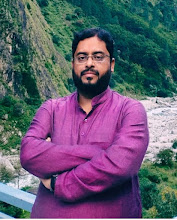Navratri is a major Hindu festival dedicated to the worship
of Goddess Adi Shakti or Maa Durga. Navratri literally means nine nights.
During these nine nights and ten days, nine forms of Shakti are worshiped and
the tenth day is commonly celebrated as Vijayadashami or Dussehra.
Nine forms of Shakti that are worshipped during the Navratri
are: First night– Shailputri, Second- Bhramcharini, Third – Chandraghanta,
Fourth –Kushmanda, Fifth – Skandmata, Sixth –Kaatyayani, Seventh–Kaalratri,
Eighth – Mahagauri and Ninth Navratri – Siddhiratri are worshipped. Tenth day
is commonly celebrated as Vijayadashami.
Navratri is a very important festival in all parts of the
country. In the western States of Karnataka, Maharashtra and Gujarat it is the
principal festival of the year and during which the traditional dance of
Gujarat Garba is widely performed.
This festival is celebrated with great zeal in North Indian
States like Uttar Pradesh, Bihar, Himachal, Uttarakhand, Rajasthan, Punjab,
Haryana, Delhi and performances of the Ramlila are the major attractions in
these states. The Dussehra of Kullu in Himachal Pradesh is particularly famous
in the North India.
The large procession of Goddess Chamundeshwari on a golden
throne mounted on several well decorated elephants in Mysore, Karnataka is the
main attraction of the Navratri festival in South India.
In the Eastern part of India
particularly in Jharkhand, Assam, West Bengal and Odisha Hindus believe that it
is lucky to start a new venture, project during Navratri or on Dussehra. So
people and particularly the business community celebrate it as the New Year. In
major Shakti Peethas like kali in Kolkata, Tara Tarini in Odisha, Kamakshya in
Assam and, in other major Peethas the Navratri is celebrated for 16 days.
Everywhere, the Sharad Navaratri culminates in the day of Vijayadashami or
Dussehra.

